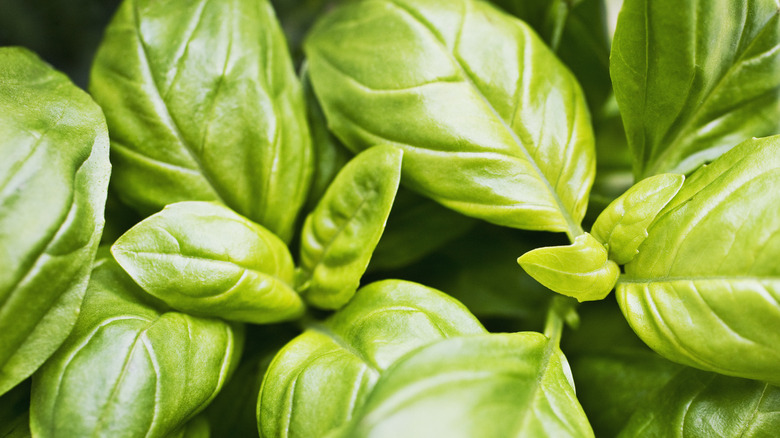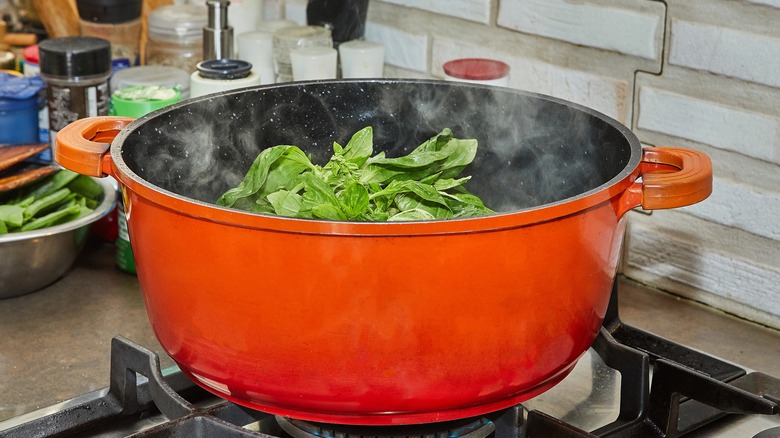Blanch And Freeze Your Wilted Basil And It'll Last For 6 Months
Basil, oh basil — beloved by chefs around the world for its tender, fragrant, sometimes-sweet leaves perking up planters and plates with verdant glory. That's a romanticized descriptor for what's a very simple garden herb growing in abundance from India to Africa, Southeast Asia, Italy, and many places in between. But it deserves all the attention it gets and more, if only for its sheer resilience and versatility in the kitchen.
It's an aromatic, earthy spice that livens up our food and supplies the body with antioxidants, vitamin K, and potential health benefits ranging from cancer prevention to reducing memory loss, high blood pressure, stroke damage, depression, and more, per Healthline. It's no wonder we want those little emerald-green leaves to hang around for a while after entering our culinary domain.
Unfortunately, basil leaves can get limp and wilt relatively quickly once plucked from the stems. You can dry them out and use them for sprinkling in pasta or salads, but it's that unmistakable fresh basil flavor you really want. The good news is that basil is a faithful cooking companion, even willing to tough it out for months in a freezer. Here's how to take advantage of that freezer option — but act fast! Once the leaves get floppy, the flavor starts to droop as well.
From blanching to oiling and freezing, basil stands strong
Basil leaves still attached to their stems typically live up to 10 days after harvesting — that's if you handle them carefully to prevent bruising and store them in a cup of water placed inside your refrigerator. Time is ticking, so use any of the fragrant goodness you can for soups, salads, sauces, pesto, and pasta dishes. Then set aside a little time to prep the remaining leaves for their freezer journey.
The simplest way of freezing basil is to pluck the leaves from the stems, wash thoroughly, carefully pat dry, spread them on a tray, and pop them into the freezer. Because of the thin, delicate composition, they'll freeze quickly, so remove them as soon as possible and transfer them to freezer-safe bags. But this method, though quick and easy, is not the best option for future flavor and consistency.
As with many fresh vegetables bound for a frozen slumber, the best results come from a preliminary blanching bath. It's a quick one — about 10 seconds of simmering in hot water should do the trick. Next, you'll quickly dunk them into cold water and pat them dry. Place the blanched basil in a blender with a splash of olive oil and purée at high speed. Author Mark Diacono recommends straining thoroughly through a layer of muslin cloth to enhance the oil, after which you can freeze the oily basil mixture as ice cubes for up to six months (via Epicurious).

